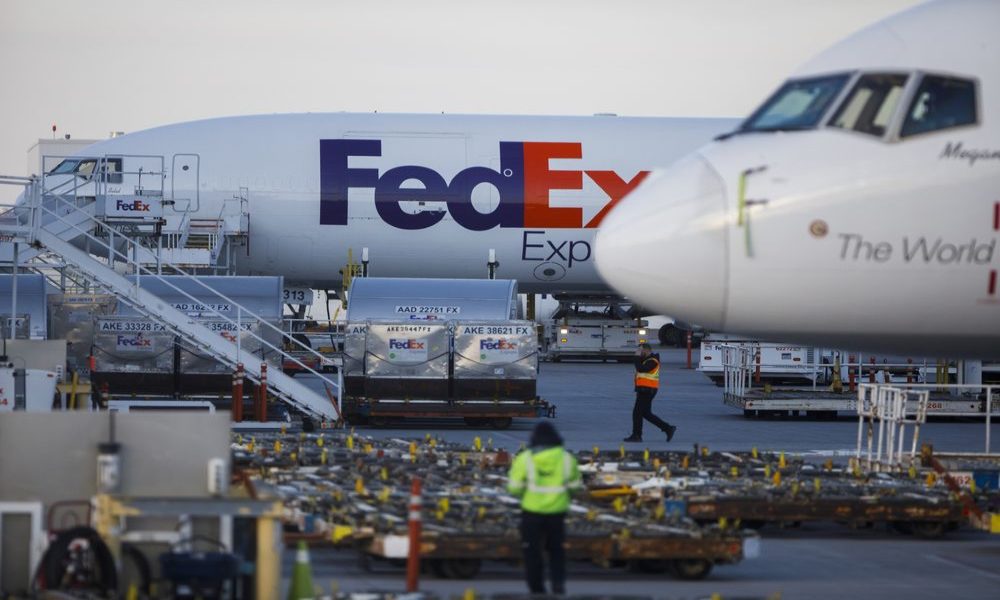
Air cargo volumes bounce back in April: CLIVE Data Services and TAC Index
Global air cargo demand bounced back into growth in April after a 3 percent dip in March, with high load factors keeping the international airfreight system under significant strain.

Global air cargo demand bounced back into growth in April after a 3 percent dip in March, with high load factors keeping the international airfreight system under significant strain as the traditional surge in summer capacity has so far failed to materialise for a second consecutive year, say industry analysts CLIVE Data Services and TAC Index.
CLIVE’s first-to-market weekly and monthly air cargo market data shows volumes in April up 1 percent over April 2019 and 78 percent compared to the same month of 2020, continuing the positive trend seen in the opening two months of this year. The second half of April 2021 showed particularly strong year-over-year growth, up 6 percent.
To provide a meaningful perspective of the air cargo industry’s performance, CLIVE Data Services is continuing to focus on comparing the current state of the market to pre-Covid 2019 volume, cargo capacity and load factor data until at least Q3 of this year. This is being produced alongside the 2020 comparison.

Despite the similar volumes as in April 2019, the pressure on available airline cargo capacity is much higher. Overall capacity was down 18 percent versus 2019 as the increase in belly capacity seen then and in previous years, as airlines increased from winter to summer schedules, remained grounded due to continuing Covid restrictions on international passenger movements. Consequently, CLIVE’s ‘dynamic loadfactor’ for April of 71 percent - based on the volume and weight perspectives of cargo flown and capacity available – was 10 percent pts higher than in 2019 and 4 percent pts above the level of a year ago.
“The air cargo market shifted gear again in April. The month-over-month change from -3 percent to +1 percent is quite a jump, but a dynamic loadfactor of 71 percent represents a tremendous strain on the air cargo system. This lack of bandwidth capacity-wise is being exacerbated by the fact there is no summer schedule based on passenger demand, which is contributing to the high rates being reported in the market,” said Niall van de Wouw, managing director of CLIVE Data Services. He added, “Airlines operating ‘preighter’ services need these rates in order to operate cargo-only operations because the margins on these services are very thin.”
China to Europe volumes were 18 percent higher in April 2021 than in 2019, with load factors ex China at 95 percent or ‘completely full’, he said. Despite a 10 percent drop in volumes from Europe to North America compared to 2019, CLIVE’s latest data also shows the fall in capacity of around 40 percent on this lane, resulting in a dynamic loadfactor at 87 percent, 21 percent pts higher than in 2019. The decline in North America to Europe volumes is less pronounced at -4 percent versus 2019, producing a load factor of 69 percent or 19 percent points higher than in 2019.
TAC Index data for April shows the impact of the volume vs. capacity conundrum on airfreight rates.
Gareth Sinclair of TAC Index commented, “There has been a big bounce back from the slowdown we saw in March with prices strengthening, driven by demand outstripping capacity in several markets, with some lanes recording higher pricing levels versus the highs seen in 2020. The BAI (Baltic Air Freight Indices) increased by almost 17 percent in April over March largely driven by China (HKG & PVG) with growth around 30 percent but London Heathrow also saw an improvement on 3 out of 4 indices although at more modest levels (3 percent) building on similar growth levels in March. Frankfurt, Chicago and Singapore origins all saw declines over March levels. There continues to be a dynamic market environment with operational crewing and permits continuing to impact some carrier operations.”
TAC Index says the differences by market can be seen in the performance of the China and Hong Kong markets, which continued to lead the way in terms of price strength, whilst the US and Europe saw a more volatile and mixed picture in April:
CN/HK-US: April ended on the highest rate this year of USD8.56 or +60 percent vs. March, with continuous week-on-week increases since Feb 22. Prices are up 8 percent versus last year and 153 percent higher versus 2019. HKG-US is exceptionally strong with the highest rate of the year at USD8.65 compared to USD4.91 on March 1 and is approaching the highest level seen last year of $8.81 in May as market capacity tightens. The April price is up 29 percent on the same period last year and 153 percent over 2019.
CN/HK-EUR: The latest USD rate of $4.89 is approaching the 2021 high of $4.96 after week-on-week improvements since Feb 22 but is down 31 percent on 2020 levels (+92percent versus 2019).
US-EUR: The USD rate finished the month at $1.74, a good week-on-week improvement after 4 weeks of decline from this year’s high of $2.13 on March 22nd.
EUR-US: This market continues to be volatile with big variances on a slightly slowing downward trend since the beginning of the year. LHR saw a positive performance in April versus March whilst FRA was negative.
“In summary, the airfreight market continues to be strong, particularly CN/HK to US, and may continue, at least in the short term, with demand strengthening as countries relax lockdowns and subdued passenger travel continues to impact capacity. With the easing of Hong Kong quarantine rules for crew, Cathay Pacific, for example, are looking to restore their full market presence as soon as possible, which may dampen pricing,” Gareth Sinclair said.

